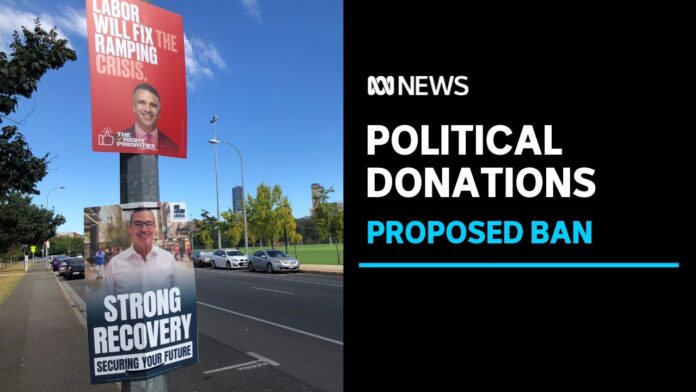Premier Peter Malinauskas unveils plans for legislation aiming to prohibit electoral donations to political parties in South Australia, anticipating potential legal challenges
In a bold move set to redefine electoral financing, the South Australian government under Premier Peter Malinauskas has announced sweeping legislation aimed at banning political parties from accepting donations at the state level. This initiative, touted as “world-leading” by its proponents, seeks to overhaul the financial dynamics of political campaigning in the region.
The proposed legislation, currently in draft form, outlines stringent measures that would prohibit registered South Australian political parties, members of parliament, and candidates from both giving and receiving electoral donations and gifts. Additionally, loans to political entities would be restricted unless obtained from formal financial institutions such as banks.
Peter Malinauskas, who previously advocated for such reforms during his tenure as opposition leader, reaffirmed the necessity of restoring public trust in democratic processes. Speaking at the University of South Australia, now Premier Malinauskas stressed the importance of crafting legislation that ensures fairness without erecting undue barriers for new political entrants lacking the financial backing of established parties.
The draft legislation includes provisions to allow new candidates and parties to receive modest donations up to $2,700, aimed at leveling the playing field against more entrenched political entities. However, violations of these proposed donation laws could carry severe penalties, including fines up to $50,000 or imprisonment for up to 10 years.
Acknowledging the potential for legal challenges, particularly in the High Court of Australia, Premier Malinauskas conceded that past judicial interpretations have recognized political donations as a form of protected speech under Australia’s constitutional framework. Despite these challenges, he expressed determination to pursue the legislative reforms, underscoring the imperative to explore new avenues for enhancing democracy rather than undermining it.
Analysis:
Political: The proposed ban on political donations in South Australia reflects broader global trends towards greater transparency and accountability in electoral financing. It positions the state government as a pioneer in advocating for stricter regulations to curb the influence of money in politics, potentially setting a precedent for other jurisdictions.
Social: The initiative to ban electoral donations resonates with growing public concerns over the undue influence of money on political decision-making. By aiming to eliminate financial contributions from vested interests, the legislation seeks to foster a more equitable political environment where candidates compete on ideas and merit rather than financial backing.
Economic: While not directly impacting economic policies, the legislation could indirectly influence public perception of fairness and integrity in governance, potentially bolstering investor confidence and business stability in South Australia.
